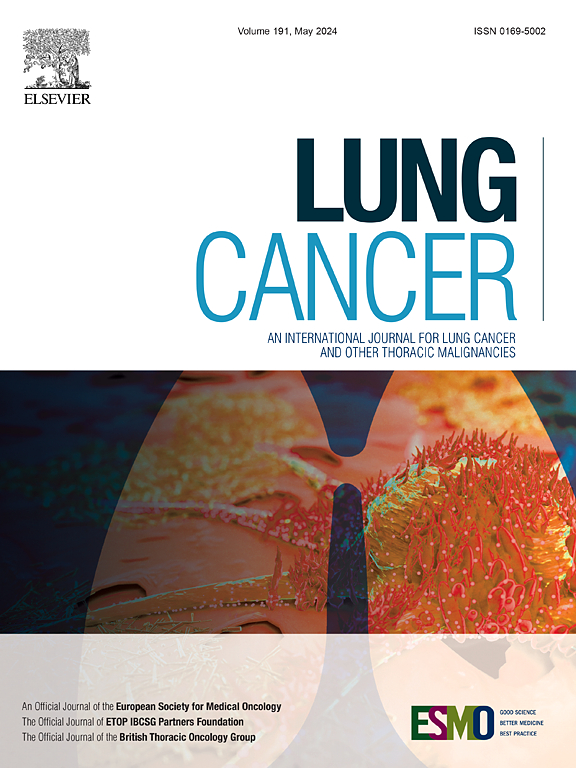CAR-T治疗肺癌:挑战与创新
IF 4.4
2区 医学
Q1 ONCOLOGY
引用次数: 0
摘要
肺癌(LC)是全球癌症死亡的主要原因。尽管目前的治疗方法包括手术、放疗、靶向治疗和免疫治疗,但大多数患者都会复发。免疫检查点抑制剂(ICIs)已经彻底改变了LC治疗,但只有一小部分患者从中受益。嵌合抗原受体(CAR) T细胞治疗是一种创新的、有前途的肿瘤治疗策略。CAR - T细胞是一种基因修饰的T淋巴细胞,表达肿瘤抗原特异性的嵌合受体。CAR - T在血液学领域非常有前景,但迄今为止,它一直难以应用于实体肿瘤的临床治疗,包括LC。针对LC的CAR - T策略在选择最佳抗原以避免脱靶效应方面提出了挑战,因为已知LC的抗原异质性和免疫抑制环境以及CAR - T持续时间相对较短,可能遇到播散性疾病。尽管存在这些限制,我们在这里描述了越来越多的临床前和临床研究,这些研究正在探索各种用于CAR - T的LC抗原,采用各种新方法和组合策略来克服这些障碍。考虑到这一新兴的临界质量,尽管存在局限性,我们希望这一努力将一小部分CAR - T转化为临床实践,对仍然致命的LCs有效。本文章由计算机程序翻译,如有差异,请以英文原文为准。

CAR-T for Lung Cancers: Challenges and Innovations
Lung cancer (LC) is the leading cause of cancer mortality worldwide. Despite current therapies, including surgery, radiotherapy, targeted therapies, and immunotherapy, most patients experience relapse. Immune checkpoint inhibitors (ICIs) have revolutionized LC treatment, but only a subset of patients benefit from them. Chimeric antigen receptor (CAR) T cell therapy emerges as an innovative and promising strategy in oncology. CAR T cells are genetically modified T lymphocytes that express a chimeric receptor specific for a tumor antigen. Very promising in hematology, CAR T has so far struggled to be transferred into the clinic for solid tumors, including LC. CAR T strategy against LC presents challenges in the selection of the optimal antigen to avoid off-target effects, for the known antigen heterogeneity and immunosuppressive environment of LC and the relatively short persistence of CAR T that may encounter disseminated diseases. Despite these limitations, here we describe growing preclinical and clinical studies that are exploring various LC antigens for CAR T within a variety of novel approaches and combinatorial strategies to overcome the barriers. Considering this emerging critical mass and despite the limits, we expect this endeavour to translate a fraction CAR T into clinical practice with efficacy against the still deadly LCs.
求助全文
通过发布文献求助,成功后即可免费获取论文全文。
去求助
来源期刊

Lung Cancer
医学-呼吸系统
CiteScore
9.40
自引率
3.80%
发文量
407
审稿时长
25 days
期刊介绍:
Lung Cancer is an international publication covering the clinical, translational and basic science of malignancies of the lung and chest region.Original research articles, early reports, review articles, editorials and correspondence covering the prevention, epidemiology and etiology, basic biology, pathology, clinical assessment, surgery, chemotherapy, radiotherapy, combined treatment modalities, other treatment modalities and outcomes of lung cancer are welcome.
 求助内容:
求助内容: 应助结果提醒方式:
应助结果提醒方式:


